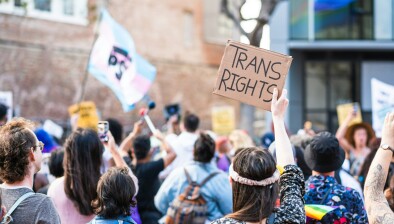Human rights commission agrees law on withholding information is unconstitutional

Emily Logan
The offence of withholding information from gardaí is unconstitutional, the Irish Human Right and Equality Commission has said.
The commission yesterday appeared before the Supreme Court as amicus curiae in a significant case examining the right to silence when a person is questioned as part of a criminal investigation.
In its legal submissions to the Supreme Court, published today, the commission agrees with Ms Justice Marie Baker of the High Court that section 9(1)(b) of the Offences Against the State Acts is unconstitutional, having regard to its vagueness and the lack of safeguards provided for under this legislation.
The submissions explore the nature of the right to silence, as well as the constitutional and human rights aspects of whether a genuine fear of self-incrimination is a reasonable excuse for failing to provide information when questioned as part of a criminal investigation.
The commission looked at comparative examples from other jurisdictions in making its argument.
The case, Sweeney v. Minister for Justice, Ireland and the Attorney General, relates to a man who was questioned, but not charged, in relation to a criminal investigation.
When interviewed by gardaí investigating the original case, he was cautioned that he had the right to remain silent, but he was not informed that his failure to respond to questioning could lead to a separate charge of withholding information from the gardaí, as subsequently happened.
In the High Court in 2017, Ms Justice Baker found section 9(1)(b) of the OSA to be unconstitutional. She held that the legislation “makes silence of itself an offence” and is “impermissibly vague and uncertain”. The State has appealed the High Court decision directly to the Supreme Court.
Chief commissioner Emily Logan said in February that the case “raises important issues about the balance between individuals’ rights to remain silent and the State’s role in preventing criminal offences”.
She added: “The outcome of this case is likely to have significant implications in the area of civil and political rights, and in particular the right to a fair trial.”







